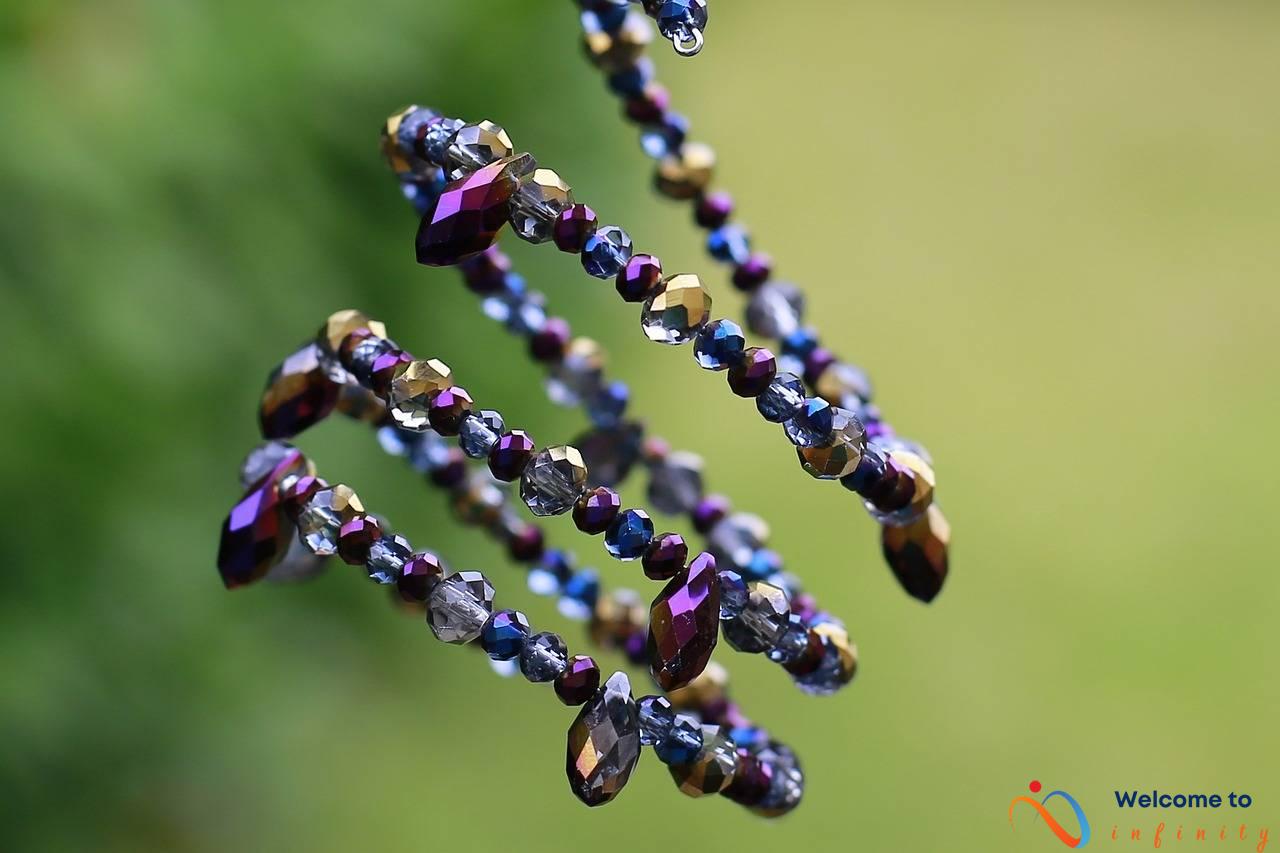Ingrown hairs can be a painful and frustrating problem, but there are natural remedies that can help to heal and prevent them. These remedies are easy to use and can be done at home. Here are 10 natural solutions to help prevent and heal ingrown hairs:
- Exfoliation: Regular exfoliation can help to prevent ingrown hairs by removing dead skin cells that can clog hair follicles. Use a scrub or exfoliating brush to gently remove dead skin cells.
- Tea Tree Oil: Tea tree oil has anti-inflammatory and antibacterial properties that can help reduce inflammation and prevent infection of ingrown hairs. Mix a few drops of tea tree oil with a carrier oil, such as coconut or jojoba oil, and apply to the affected area twice daily.
- Witch Hazel: Witch hazel is a natural astringent that can help to reduce inflammation and redness caused by ingrown hairs. Apply witch hazel to a cotton ball and dab it onto the affected area several times a day.
- Aloe Vera: Aloe vera has soothing properties that can help to reduce inflammation and irritation caused by ingrown hairs. Apply fresh aloe vera gel to the affected area and leave it on for 30 minutes before rinsing off with warm water. Repeat twice daily.
- Cold Compress: A cold compress can help to reduce inflammation and itching caused by ingrown hairs. Wrap ice in a towel and apply it to the affected area for 5-10 minutes several times a day.
- Lemon Juice: Lemon juice has natural exfoliating properties that can help to prevent ingrown hairs. Apply fresh lemon juice to the affected area and leave it on for 10 minutes before rinsing off with warm water. Repeat twice daily.
- Honey: Honey has antibacterial properties that can help to prevent infection of ingrown hairs. Apply raw honey to the affected area and leave it on for 10 minutes before rinsing off with warm water. Repeat twice daily.
- Cucumber: Cucumber has anti-inflammatory properties that can help to reduce swelling and redness caused by ingrown hairs. Slice a fresh cucumber and place the slices on the affected area for 10 minutes. Repeat twice daily.
- Coconut Oil: Coconut oil has moisturizing properties that can help to prevent ingrown hairs by keeping the skin hydrated. Apply coconut oil to the affected area and massage gently. Repeat twice daily.
- Epsom Salt: Epsom salt has anti-inflammatory properties that can help to reduce swelling and redness caused by ingrown hairs. Add 2 tablespoons of Epsom salt to a warm bath and soak in it for 15-20 minutes. Repeat twice weekly.
Ingrown hairs can be a painful and annoying problem, but by using these natural remedies, you can prevent and heal ingrown hairs at home. Give them a try and see which ones work best for you.
Exfoliation
Regular exfoliation is a great way to prevent ingrown hairs. When you exfoliate, you remove dead skin cells that can clog the hair follicles and cause hairs to grow back into the skin. The process of exfoliation also promotes the growth of healthy skin by increasing cell turnover.
There are several ways to exfoliate your skin, such as using a gentle scrub or a chemical exfoliant. When selecting a scrub, look for one that is designed for sensitive skin and contains natural exfoliants like oatmeal, sugar, or salt. Be sure to avoid scrubs with sharp particles that can damage the skin.
If you prefer a chemical exfoliant, look for products that contain alpha-hydroxy acids (AHAs) or beta-hydroxy acids (BHAs). These acids work by dissolving the bonds that hold dead skin cells together, allowing them to be easily washed away.
To use an exfoliant, moisten your skin with warm water and gently massage the product into the affected area. Rinse thoroughly and pat your skin dry. Be sure to follow up with a moisturizer to prevent dryness and irritation.
- Use gentle exfoliators designed for sensitive skin with natural components like oatmeal, sugar, or salt.
- Avoid scrubs with sharp particles that can damage the skin.
- Look for products with alpha-hydroxy acids (AHAs) or beta-hydroxy acids (BHAs) as chemical exfoliants to dissolve dead skin cells.
- Moisten your skin with warm water before gently massaging the product into the affected area.
- Rinse thoroughly and pat your skin dry. Follow up with a moisturizer to prevent dryness and irritation.
Regular exfoliation can help to not only prevent ingrown hairs but also improve the overall appearance of your skin. It is an easy and effective way to promote healthy skin and keep unwanted hair growth at bay.
Tea Tree Oil
Tea tree oil is a popular natural remedy for ingrown hairs due to its anti-inflammatory and antibacterial properties. It has been shown to help reduce inflammation and prevent infection of ingrown hairs. To use tea tree oil for this purpose, mix a few drops with a carrier oil such as coconut or jojoba oil and apply to the affected area twice daily. Tea tree oil should not be applied directly to the skin as it can cause irritation.
In addition to its benefits for ingrown hairs, tea tree oil has been used for a variety of skin conditions including acne, eczema, and psoriasis. It is also a common ingredient in many natural beauty and skincare products.
While tea tree oil has many potential benefits, it is important to use it properly and in moderation. If you are allergic to tea tree oil or any of its components, you should avoid using it. Always patch test a small area of skin before using tea tree oil for the first time to avoid any potential skin irritation or allergic reaction.
Overall, tea tree oil can be a useful natural remedy for ingrown hairs due to its anti-inflammatory and antibacterial properties. It is easy to use and widely available at health food stores and online. If you are struggling with ingrown hairs, consider adding tea tree oil to your natural remedies arsenal.
How to Use Tea Tree Oil?
If you're wondering how to use tea tree oil for ingrown hairs, it's pretty simple. All you need to do is mix a few drops of tea tree oil with a carrier oil, such as coconut or jojoba oil, in a small bowl. Then, apply the mixture to the affected area twice daily for best results.
Tea tree oil is an essential oil that has antiseptic, anti-inflammatory, and antibacterial properties- all of which make it a great natural remedy for ingrown hairs. The carrier oil helps to dilute the tea tree oil and make it easier to apply to the skin without any irritation.
When applying the mixture to the skin, make sure to massage it gently so that it can penetrate the hair follicles thoroughly. Be sure to repeat this process every day until the ingrown hair has healed completely.
Aside from mixing tea tree oil with a carrier oil, you can also use tea tree oil-infused products like creams, lotions, and soaps. These products can also be effective at preventing and treating ingrown hairs.
In general, tea tree oil is safe for most people to use, but it's always a good idea to do a patch test first just to make sure you don't have any adverse reactions to it.
Witch Hazel
Witch hazel is a popular natural remedy for ingrown hairs due to its astringent properties. The astringent effect of witch hazel helps to reduce inflammation and redness caused by ingrown hairs. This natural remedy is suitable for all skin types, including sensitive skin.
You can use witch hazel by applying it topically to the affected area several times a day. To use witch hazel, soak a cotton ball with the solution and apply it to the ingrown hair. Allow the witch hazel to dry, and do not rinse it off. You can also use witch hazel as a toner after shaving or waxing to prevent ingrown hairs from forming.
It is essential to ensure that you are using natural witch hazel solution and not a product that contains added ingredients such as alcohol or fragrance. Natural witch hazel solution is available at most drugstores and health food stores. Always perform a patch test before using witch hazel to prevent any allergic reactions or skin irritation.
In addition to using witch hazel, it is crucial to avoid tight clothing that irritates the skin and causes ingrown hairs. You should also exfoliate regularly to remove dead skin cells that can clog hair follicles, leading to ingrown hairs. Exfoliation should be done gently and should not be too harsh, as this can cause skin irritation and damage.
By using witch hazel and incorporating other natural remedies into your skincare routine, you can prevent and treat ingrown hairs effectively. These solutions are safe, affordable, and easy to use, making them an excellent choice for those who prefer natural remedies over conventional treatment methods.
How to Use Witch Hazel?
Witch hazel is a natural astringent that can help to reduce inflammation and redness caused by ingrown hairs. Here's how to use it:
- Start by cleaning the affected area with a mild soap and warm water.
- Take a cotton ball and apply some witch hazel to it.
- Dab it onto the affected area several times a day, making sure to cover the entire area.
- Repeat this process daily until the ingrown hair is gone.
- Be careful not to overuse witch hazel, as it can dry out the skin.
Witch hazel is a gentle and effective remedy for ingrown hairs, but it's important to remember that everyone's skin is different. If you experience any irritation or discomfort while using witch hazel, discontinue use immediately and try a different remedy.
Aloe Vera
Ingrown hairs can be quite uncomfortable and irritating, but the good news is that there is a natural solution to help ease the symptoms. Aloe vera is a plant that is known for its soothing properties and can help to reduce inflammation and irritation caused by ingrown hairs.
Aloe vera is rich in vitamins and minerals that can help to nourish the skin and promote healing. It can help to reduce redness, swelling, and itching caused by ingrown hairs. Applying fresh aloe vera gel to the affected area can help to provide relief from the discomfort and pain associated with ingrown hairs.
One way to use aloe vera for ingrown hairs is to apply fresh aloe vera gel to the affected area and leave it on for 30 minutes before rinsing off with warm water. Repeat twice daily for best results. Aloe vera can also be mixed with other ingredients, such as tea tree oil or honey, for added benefits.
It's important to note that not all aloe vera products are created equal. Look for products that contain a high concentration of aloe vera, preferably 100%, and avoid products that contain added fragrances or preservatives.
In addition to treating ingrown hairs, aloe vera can also help to prevent them from occurring. Regularly applying aloe vera to the skin can help to keep it hydrated and prevent dryness, which can contribute to the development of ingrown hairs.
Overall, aloe vera is a natural and effective solution for healing and preventing ingrown hairs. It is gentle on the skin and can provide quick relief from the discomfort associated with ingrown hairs. Give it a try and see the difference it can make for your skin.
How to Use Aloe Vera?
To use aloe vera for ingrown hair, follow these steps. Firstly, take fresh aloe vera gel from a freshly cut aloe vera leaf. Next, apply the gel generously to the affected area. Leave the gel on for 30 minutes to allow it to penetrate the skin and soothe any inflammation or irritation. Finally, rinse the area with warm water and pat dry with a clean towel. Repeat this process twice daily until the ingrown hair subsides.
Aloe vera can also be combined with other natural remedies to enhance its effectiveness. For example, you can mix aloe vera gel with honey to create a powerful antibacterial treatment. Make a mixture of 1 tablespoon of fresh aloe vera gel and 1 tablespoon of raw honey. Apply the mixture to the affected area and leave it on for 10 minutes before rinsing off with warm water. Repeat this process twice daily for best results.
You can also create an aloe vera exfoliating scrub to help prevent ingrown hairs. Mix 1 tablespoon of fresh aloe vera gel with 1 tablespoon of sugar and 1 teaspoon of lemon juice. Apply the mixture to the affected area and gently scrub in a circular motion for 2-3 minutes. Rinse off with warm water and pat dry. Use this scrub once a week to keep your skin smooth and prevent ingrown hairs.
Additionally, aloe vera can be used as a preventative measure against ingrown hairs. Apply fresh aloe vera gel to your skin after shaving or waxing to soothe any irritation and prevent ingrown hairs from forming. Aloe vera's moisturizing properties will also keep your skin hydrated, which is essential for preventing ingrown hairs.
In conclusion, aloe vera is a versatile natural remedy for ingrown hairs that can be used alone or in combination with other natural remedies. Its soothing properties reduce inflammation and irritation, while its antibacterial properties prevent infection. Adding aloe vera to your skincare routine can help you prevent and heal ingrown hairs.
Cold Compress
Ingrown hairs can cause inflammation and itching, but a cold compress can help to relieve these symptoms. Applying a cold compress to the affected area can also help to reduce swelling and redness caused by ingrown hairs.
Creating a cold compress is easy. Simply wrap ice in a towel and apply it to the affected area for 5-10 minutes several times a day. It is important to never apply ice directly to the skin as it can cause damage to the skin. Instead, use a towel to protect the skin while applying the cold compress.
- Wrap the ice in a clean, soft towel.
- Apply the cold compress to the affected area for 5-10 minutes.
- Remove the cold compress for a few minutes before reapplying it for another 5-10 minutes.
- Repeat this process several times a day until the symptoms of ingrown hairs have subsided.
If you don't have ice available, you can also use a bag of frozen peas or a gel pack that has been chilled in the refrigerator.
Using a cold compress is a natural, effective way to relieve the uncomfortable symptoms of ingrown hairs. Along with other natural remedies such as exfoliation and tea tree oil, it can help to heal and prevent ingrown hairs from recurring.
How to Use Cold Compress?
Cold compress is a simple yet effective way to reduce inflammation and itching caused by ingrown hairs. Here's how you can use it:
- Fill a plastic bag with ice cubes or use a gel pack that can be chilled in the freezer.
- Wrap the ice pack in a clean towel or cloth.
- Apply the cold compress to the affected area for 5-10 minutes several times a day.
- Repeat the process as often as necessary to relieve the symptoms of ingrown hairs.
Remember not to apply the ice pack directly to the skin as it can cause frostbite and damage the delicate skin tissue. Always wrap the ice pack in a towel or cloth to protect the skin and avoid any further injuries. Cold compress can be used in combination with other natural remedies for ingrown hairs to achieve the best results.
Lemon Juice
Lemon Juice is a commonly used natural solution for treating and preventing ingrown hairs. It is an excellent exfoliating agent due to its natural acidic properties which help to remove dead skin cells and prevent clogging of hair follicles. Regular use of lemon juice can help to prevent the formation of ingrown hairs, reduce inflammation and redness caused by ingrown hairs and brighten the skin tone.
To use lemon juice as a natural remedy for ingrown hairs, simply apply fresh lemon juice on the affected area and leave it on for 10 minutes before rinsing off with warm water. This can be repeated twice daily for best results. For individuals with sensitive skin, it is recommended to dilute the lemon juice with water before applying it to the affected area.
Alternatively, you can create a simple DIY scrub by combining lemon juice with sugar or salt to help aid in exfoliation. Simply mix equal parts of lemon juice, sugar or salt, and a carrier oil such as coconut or olive oil to create a paste. Gently massage the paste onto the affected area in a circular motion for a few minutes and then rinse off with warm water. This can be done once a week to help prevent ingrown hairs and keep the skin looking smooth and bright.
While lemon juice is an effective natural remedy for ingrown hairs, individuals with sensitive skin, allergies, or open wounds should avoid using this remedy as it can cause irritation and exacerbate any existing skin conditions. It is important to do a patch test on a small area of skin before using lemon juice as a natural remedy for ingrown hairs to ensure that there is no adverse reaction.
How to Use Lemon Juice?
To use lemon juice as a remedy for ingrown hairs, start by cutting a fresh lemon and squeezing out the juice. Apply the juice directly to the affected area and leave it on for about 10 minutes. Lemon juice has natural exfoliating properties that can help prevent ingrown hairs and remove dead skin cells that can clog hair follicles.
After 10 minutes, rinse off the lemon juice with warm water. It's recommended to repeat this process twice daily for the best results. Remember to always use fresh lemon juice and avoid getting it in your eyes or on any open wounds.
You can also use lemon juice as a natural toner for your skin. Mix equal parts lemon juice and water and apply to your face with a cotton ball to reduce oiliness, acne, and brighten your complexion. Lemon juice also contains vitamin C, which can help boost collagen production and improve the overall health of your skin.
In addition to using lemon juice, it's important to maintain good skin hygiene to prevent ingrown hairs from forming. Exfoliate regularly and keep your skin moisturized to help hair grow out of the follicle properly. Ingrown hairs can also be caused by tight clothing or shaving against the direction of hair growth, so be mindful of these factors as well.
Overall, lemon juice can be a helpful solution for preventing and treating ingrown hairs. It's an affordable and natural alternative to harsher chemical treatments.
Honey
Honey is a natural ingredient that has been used for centuries to treat various ailments. It has antibacterial properties that can help to prevent infection of ingrown hairs. When honey is applied to the affected area, it creates a barrier that prevents bacteria from entering the hair follicle. This reduces the risk of developing an infection and promoting quicker healing.
Raw honey is the best type of honey to use for treating ingrown hairs as it has more powerful antibacterial properties than processed honey. Raw honey has high levels of enzymes, antioxidants, and antibacterial properties that can help to soothe the skin and reduce inflammation caused by ingrown hairs. It also helps to keep the skin moisturized, which can help to prevent future ingrown hairs.
To use honey as a treatment for ingrown hairs, apply raw honey to the affected area and leave it on for 10 minutes before rinsing off with warm water. Repeat this process twice daily. You can also mix honey with other natural ingredients like aloe vera, tea tree oil, lemon juice, or coconut oil to create a more potent treatment.
In summary, honey is a natural solution for preventing and treating ingrown hairs due to its antibacterial and anti-inflammatory properties. It helps to prevent infection and soothe the skin by creating a barrier against bacteria and keeping the skin moisturized.
How to Use Honey?
When it comes to treating ingrown hairs, raw honey can be extremely effective. Honey has natural antibacterial properties that can prevent infection and soothe the affected area. Here's how to use honey to treat ingrown hairs:
- Clean the affected area with warm water and mild soap.
- Pat the area dry with a clean towel.
- Apply a thin layer of raw honey to the affected area.
- Leave the honey on for 10 minutes.
- Rinse off the honey with warm water.
- Repeat this process twice daily until the ingrown hair has healed.
You can also mix honey with other natural ingredients to enhance its healing properties. For example, you can mix honey with aloe vera gel or tea tree oil. Applying this mixture to the affected area can provide additional relief and speed up the healing process.
Cucumber
Cucumbers are rich in antioxidants and have natural anti-inflammatory properties that make them a great natural remedy for ingrown hairs. You can use fresh cucumber slices to help soothe the affected area and reduce swelling and redness.
To use cucumbers for ingrown hairs, simply cut a fresh cucumber into thin slices and place them on the affected area for 10 minutes. You can repeat this process twice daily until your ingrown hair has healed.
If you want to take it a step further, you can create a cucumber paste by blending fresh cucumbers in a food processor and adding a tablespoon of honey to the mix. Apply the paste to the affected area and leave it on for 20 minutes before rinsing off with warm water. This will help to exfoliate the skin and reduce inflammation caused by your ingrown hair.
Remember to always use fresh, organic cucumbers for the best results. Using cucumber-based skincare products can also be beneficial for preventing and treating ingrown hairs, as they can help to keep the skin hydrated and healthy.
Overall, cucumbers are a safe and effective natural solution for reducing swelling and redness caused by ingrown hairs, so add them to your list of remedies to try at home!
How to Use Cucumber?
One of the easiest and most effective natural remedies for healing and preventing ingrown hairs is using cucumber. Cucumber has anti-inflammatory properties that can help to reduce swelling and redness caused by ingrown hairs. Here's how to use cucumber to treat ingrown hairs:
| Step | Instructions |
|---|---|
| Step 1 | Get a fresh cucumber and wash it thoroughly. |
| Step 2 | Slice the cucumber into thin pieces using a sharp knife or mandoline slicer. |
| Step 3 | Place the cucumber slices on the affected area for 10 minutes. |
| Step 4 | Remove the cucumber slices and rinse the affected area with warm water. |
| Step 5 | Pat the area dry with a clean towel. |
| Step 6 | Repeat the process twice daily until the ingrown hair heals completely. |
While using cucumber to treat ingrown hairs, it is important to ensure that the slices are fresh and clean to prevent any infection. You can also chill the cucumber slices in the refrigerator for a few minutes before using them to get a cooling effect on the affected area.
Coconut Oil
Coconut oil is a natural moisturizer that can help keep your skin hydrated, preventing ingrown hairs. When the skin is dry, it becomes more prone to irritation, inflammation, and bumps. Applying coconut oil regularly can help prevent ingrown hairs and provide relief from the symptoms of existing ingrown hairs.
To use coconut oil for ingrown hairs, gently massage a small amount of the oil onto the affected area. The oil will help soften and lift the hair, making it easier to remove. Coconut oil also has anti-inflammatory and antiseptic properties that can help soothe and heal the skin and prevent infection.
The best time to use coconut oil is after exfoliating your skin. First, exfoliate your skin to remove any dead skin cells that could clog your pores and cause ingrown hairs. After exfoliating, apply coconut oil to the affected area. Repeat this process daily for the best results.
You can also mix coconut oil with other ingredients such as tea tree oil, which has antibacterial properties to fight infection, and lavender oil, which can help soothe inflammation and promote healing. Be sure to do a patch test before applying any new mixtures to your skin to avoid any adverse reactions.
In conclusion, coconut oil is an excellent natural remedy for preventing and treating ingrown hairs. Its moisturizing and healing properties can help keep your skin healthy and ingrown hair-free.
How to Use Coconut Oil?
To use coconut oil for preventing and healing ingrown hairs, first, make sure the affected area is clean and dry. Then, apply a small amount of coconut oil onto the area and massage gently in circular motions. Repeat this process twice daily for best results.
Coconut oil is a natural moisturizer that can help to prevent ingrown hairs by keeping the skin hydrated. It can also help to soothe and calm irritated skin.
If you have sensitive skin, it is recommended to do a patch test before use to make sure there is no allergic reaction. Simply apply a small amount of coconut oil to a small area of skin and wait 24 hours to see if any reaction occurs.
In addition to using coconut oil topically, you can also add it to your diet to help promote healthy skin. Coconut oil is high in antioxidants and healthy fats, which can help to nourish the skin from the inside out.
Overall, using coconut oil is an easy and effective way to prevent and heal ingrown hairs naturally. It is important to be consistent with application and to keep the affected area clean and dry to achieve the best results.
Epsom Salt
Epsom salt, which is made of magnesium sulfate, has been used for centuries to relieve muscle aches and pains, and it can also be useful in treating ingrown hairs. Epsom salt has anti-inflammatory properties that can help to reduce swelling and redness caused by ingrown hairs.
An easy way to use Epsom salt to treat ingrown hairs is by adding it to a warm bath. Simply add two tablespoons of Epsom salt to a warm bath and soak in it for 15-20 minutes. Repeat this process twice weekly to see results.
If you don't have time for a bath, you can also create a warm compress using Epsom salt. Mix two tablespoons of Epsom salt with a cup of warm water and soak a washcloth in the mixture. Apply the warm compress to the affected area for 10-15 minutes, repeating several times a day.
It's important to note that Epsom salt should not be used on open wounds, so if you have broken skin or a severe ingrown hair, consult with a doctor before trying this treatment.
Epsom salt can also be used as a natural exfoliant to prevent ingrown hairs. Mix equal parts Epsom salt and coconut oil to create a paste, and massage it onto the affected area in a circular motion for a few minutes. Rinse off with warm water and repeat this process once a week to keep ingrown hairs at bay.
In conclusion, Epsom salt can be an effective and natural solution for treating and preventing ingrown hairs. Whether used in a warm bath, as a warm compress, or as an exfoliating paste, Epsom salt's anti-inflammatory properties can help to reduce swelling and redness and keep your skin looking smooth and healthy.
How to Use Epsom Salt?
Epsom salt is a natural anti-inflammatory agent that can help to reduce inflammation and redness caused by ingrown hairs. It can be used as part of your regular bath routine by following these simple steps:
- Fill your bathtub with warm water until it is deep enough to cover the affected area.
- Add 2 tablespoons of Epsom salt to the water and stir until it has dissolved completely.
- Soak in the bath for 15-20 minutes, making sure that the affected area is fully submerged in the water.
- Repeat this process twice weekly for best results.
Using Epsom salt regularly can also help to soften and exfoliate the skin, making it easier for ingrown hairs to break through the surface and reducing the risk of future occurrences. However, it is important to note that Epsom salt baths may not be suitable for everyone, particularly those with certain medical conditions such as heart disease or high blood pressure, so it is best to speak with your doctor before adding Epsom salt to your bath routine.












